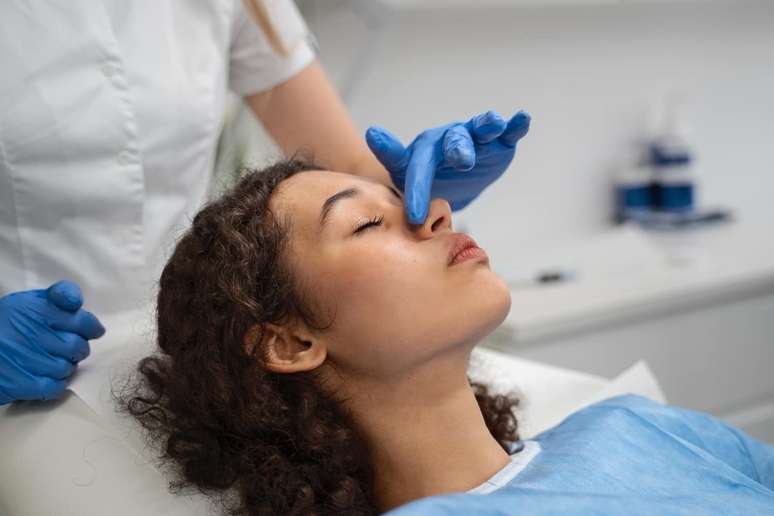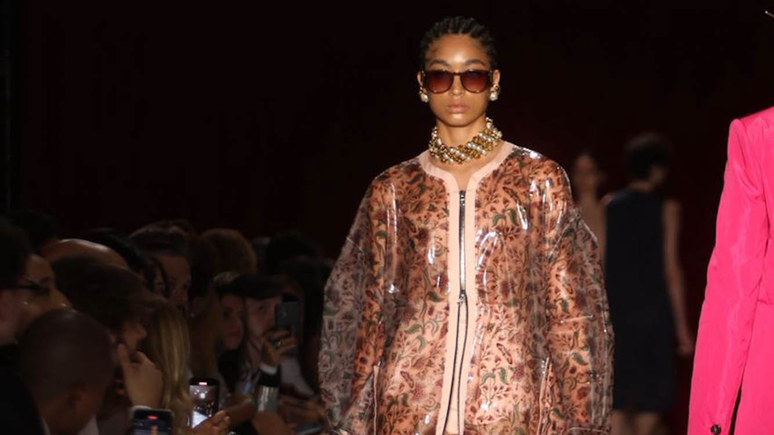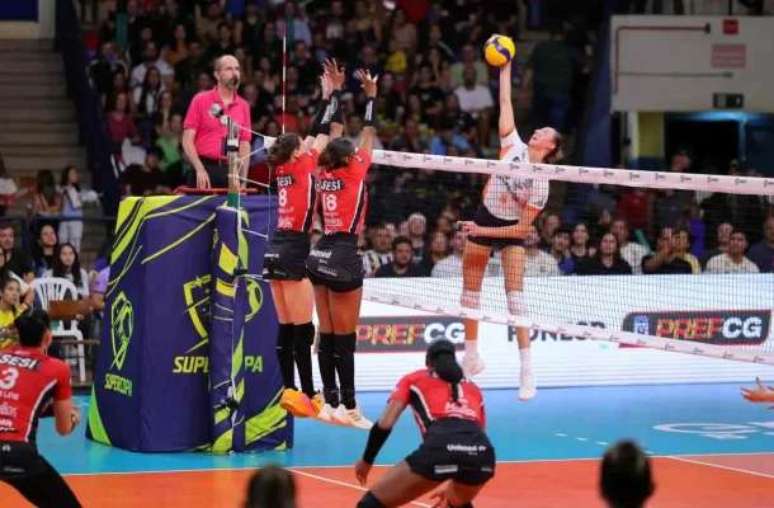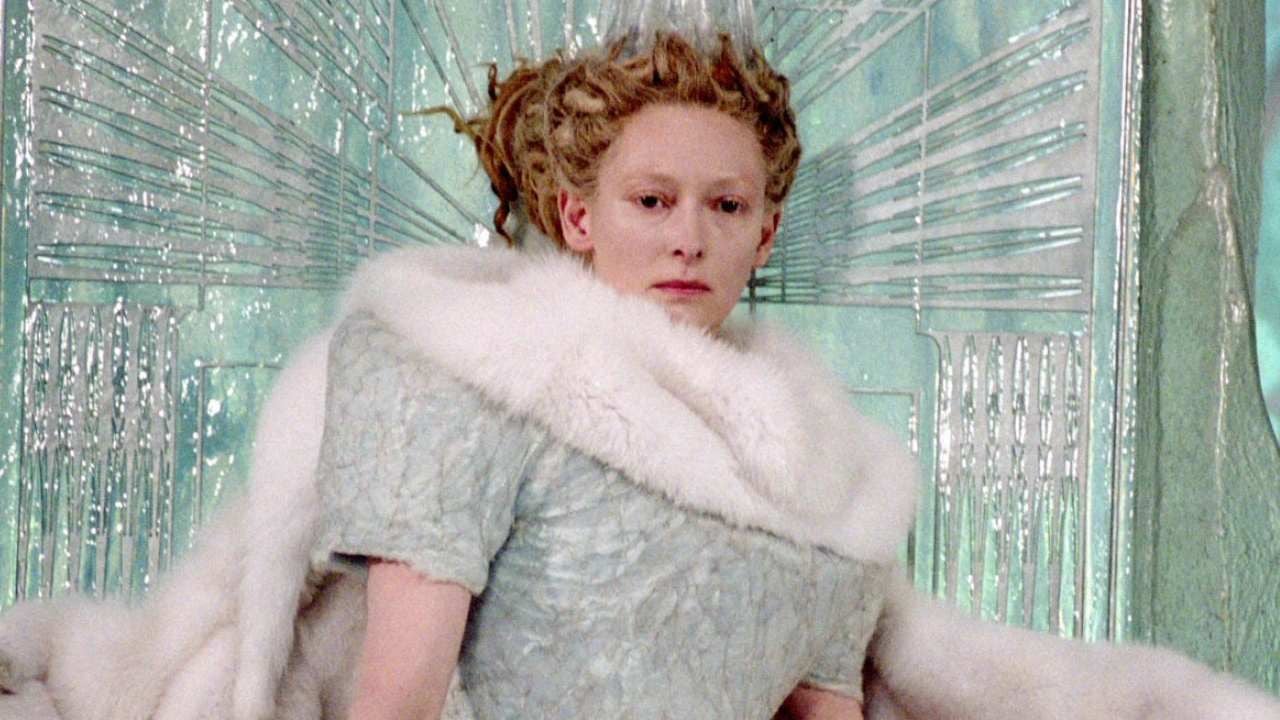Neuroticism increases the likelihood of undergoing nose plastic surgery by up to 30%.
Summary
The study shows that negative childhood events and personality traits influence the decision to undergo rhinoplasty, with an increase in likelihood of up to 30%.
Aesthetic interventions are increasingly widespread and rhinoplasty is one of the most performed, since the desire for a better appearance is closely linked to the psychological health of the individual. But a recent study published in the journal Aesthetic plastic surgery have shown that negatively dealing with common life events and carrying around childhood trauma can increase the likelihood of having nose plastic surgery by up to 30%.
“There are a few main reasons why many people may develop nose-related complexes. The nose plays a central role in the aesthetic balance of the face and there are psychological and social issues, as well as beauty standards, negative comments and personal experiences. It is not uncommon for patients who undergo rhinoplasty surgery to suffer more from anxiety and have had negative experiences during childhood,” explains the plastic surgeon. Paolo Rubezmember of the Brazilian Society of Plastic Surgery and the International Society of Aesthetic Plastic Surgery.
“Concern about the size of the nose is a common theme among many patients and can have different psychological and social origins,” adds the doctor.
The study included 256 individuals, including 106 who underwent rhinoplasty, 46 who were considering rhinoplasty, and 104 who were not considering rhinoplasty. “The study concluded that both personality traits and childhood trauma influence the decision to undergo rhinoplasty,” he says.
The scientific work highlights that neuroticism, the tendency to easily experience negative emotions when faced with common life events, increased the probability of undergoing rhinoplasty by 16.3%, and this percentage rose to 29.3% if a family member underwent rhinoplasty.
“This suggests that emotionally vulnerable people may see rhinoplasty as a way to improve their self-esteem and address their appearance concerns. We know that self-esteem is a crucial aspect of people’s lives and rhinoplasty has proven to be an effective way to improve it, but it is important that the patient also seeks help for their mental health. Through rhinoplasty it is possible to correct asymmetries, reduce or increase the size of the nose, streamline it and improve the proportions of the face as a whole. These cosmetic changes provide patients with a renewed sense of self-confidence,” says the doctor.
The study also found that psychoticism, which involves vulnerability to impulsive, aggressive or low-empathic behavior in an individual, increases the likelihood of rhinoplasty by 15.4% and the rate rises to 19.1% if no member of the family family underwent rhinoplasty.
“The increase in the rate of absence of family reference clarifies an important issue, namely a greater tendency to make impulsive decisions. It is important for the doctor to evaluate case by case and identify whether the patient does not have an obsession with resembling another person, with another characteristic, which is linked to image distortion,” says the doctor.
Another personality trait, extroversion, which involves a person’s tendency to be friendly and socially bold, talkative, affectionate and party-loving, increased the likelihood by 24.4%, and this percentage increased to 30.9% if a family member had undergone rhinoplasty.
“Increased exposure and social interaction can increase appearance pressure, influencing the decision for rhinoplasty,” says the doctor. “Emotional abuse, mediated by neuroticism, increased the likelihood of undergoing rhinoplasty by 5.4%, and this increased to 17.7% if a family member had undergone rhinoplasty. Physical neglect increased the likelihood by 17.9%, and this rate increased to 22% if no family member had undergone rhinoplasty.
The main problem, according to the doctor, is the size of the nose. “Negative comments or bullying related to nose size can have a significant impact on a person’s self-esteem. Some people may have experienced traumatic experiences or events in which their nose was the focus of negative attention, which can lead to great concern about the size of their nose,” says the doctor.
“If a person’s nose doesn’t fit into these ideal standards, they may feel insecure and develop complexes about it,” he says. «But this, obviously, must always be evaluated in relation to the proportions of the face, because there is no perfect and ideal nose for everyone. As surgeons, we must respect individuality.”
The natural tendency to compare oneself with others can also lead to the perception that one’s nose is disproportionate or inadequate. “When you see noses considered more harmonious or attractive by others, you may develop concerns about your own nose,” he points out.
Finally, the specialist underlines that rhinoplasty has made great progress in recent years, bringing significant aesthetic benefits to patients. “In addition to correcting imperfections, this surgery has proven to be a powerful ally in improving self-esteem, facial beautification and even anti-aging perception. With improved techniques, innovative materials and a deeper knowledge of the nasal anatomy, the results obtained have been increasingly natural and personalized”, concludes the doctor.
inspires transformation in the world of work, in business, in society. Compasso, a content and connection agency, is born.
Source: Terra
Ben Stock is a lifestyle journalist and author at Gossipify. He writes about topics such as health, wellness, travel, food and home decor. He provides practical advice and inspiration to improve well-being, keeps readers up to date with latest lifestyle news and trends, known for his engaging writing style, in-depth analysis and unique perspectives.









